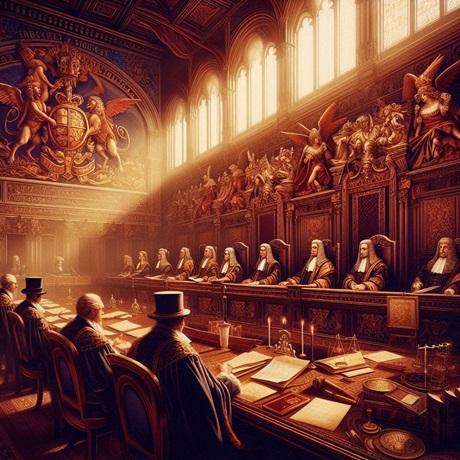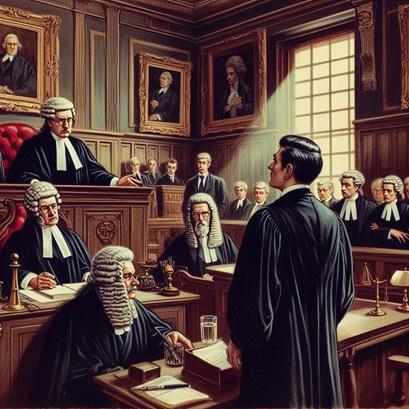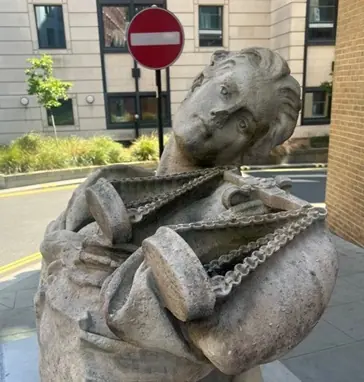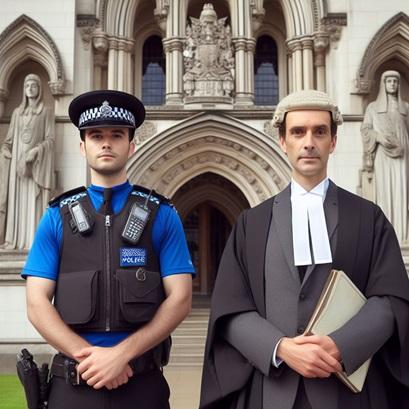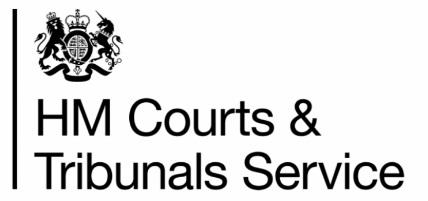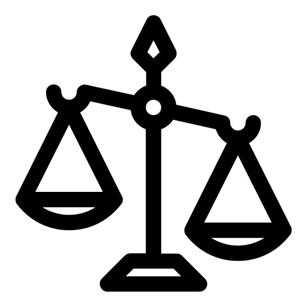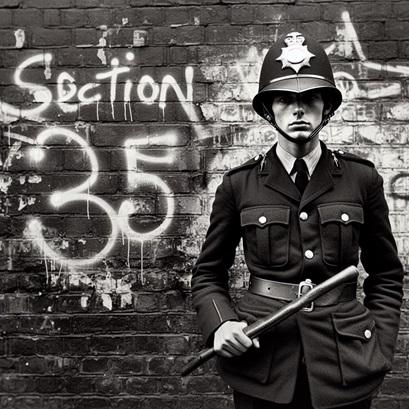A judgment, also known as a judicial decision or court ruling, is the final decision made by a court of law in a legal case or dispute. It represents the court’s official decision on the matters brought before it and typically resolves the legal issues in question.
It is the culmination of legal proceedings, where a judge evaluates evidence, arguments and applicable laws to arrive at a verdict. Whether it’s a criminal case, family dispute, civil dispute or administrative matter, a judgment carries significant consequences for the parties involved.
A judgment may include various elements such as:
- Findings of Fact: The court’s determination of what events or circumstances occurred in the case.
- Conclusions of Law: The legal principles applied by the court to the facts of the case to reach a decision.
- Decision or Disposition: The specific outcome or ruling of the case, which could include a verdict of guilty or not guilty (in a criminal case), or a judgment for the plaintiff or defendant (in a civil case).
- Orders: Any specific actions or remedies ordered by the court as part of the judgment, such as monetary damages, injunctions, or other relief.
A court judgment is typically written and issued by a judge or a panel of judges. It is a formal and legally binding document that concludes the legal proceedings in the case, although it may be subject to appeal or modification under certain circumstances.
Sometimes, judgment is reserved, which means withholding a final opinion until more information is available. It acknowledges the complexity of issues and avoids premature conclusions.
These are the latest judgments published by the Courts and Tribunals Judiciary of England and Wales.
- Neutral citation number: [2024] EWHC 983 (Admin)Case Number: AC-2023-LDS-000049 In the High Court of JusticeKing’s Bench DivisionAdmin CourtSitting in Leeds 26 April 2024 Before: Mrs Justice Hill DBE Between: R (on the application of) Glenn Skelton -v- Director General of the Independent Office forPolice Conductand(1) Officer B50(2) Chief Constable of Humberside Police The post Skelton -v- IOPC appeared first on […]
- In the Central Criminal Court, Old Bailey 26 April 2024 Sentencing remarks of Her Honour Judge Anuja Dhir KC Between: Regina -v- Iftikhar Ali The post Regina -v- Iftikhar Ali appeared first on Courts and Tribunals Judiciary.
- Neutral Citation Number: [2024] EWCA Civ 423Case Numbers: CA-2023-000615CA-2023-000643 In the Court of Appeal (Civil Division)On appeal from the High Court of JusticeBusiness and Property Courts of England and WalesInsolvency and Companies List (ChD) 26 April 2024 Before: Lord Justice NeweyLord Justice ArnoldLord Justice Snowden Between: 1) Greig William Alexander Mitchell2) Kenneth Melvin Krys (Joint […] The post Mitchell -v- […]
- Neutral citation number: [2024] EWCA Civ 412Case Number: CA-2023-000623 In the Court of Appeal (Civil Division)On appeal from the High Court of JusticeKing’s Bench Division 26 April 2024 Before: Lord Justice Underhill(President of the Court of Appeal, Civil Division)Lady Justice AsplinandLord Justice Males Between: 1) Rosemary Sherman2) Nicholas Sherman -v- Reader Offers Limited The post Sherman -v- Reader Offers Limited […]
- Neutral citation number: [2024] EWHC 849 (Comm)Case Number: CL-2020-000347 In the High Court of JusticeBusiness and Property Courts of England and WalesCommercial Court (KBD) 26 April 2024 Before: Mr Justice Bright Between: Christopher Bernard Upham and others -v- HSBC UK Bank plc The post Upham and others -v- HSBC appeared first on Courts and Tribunals Judiciary.
- Neutral Citation Number: [2024] EWCA CIV 420Case Number: CA-2023-000729 In the Court of Appeal (Civil Division)On Appeal From the High Court of JusticeKing’s Bench DivisionAdministrative Court 25 April 2024 Before:Sir Keith Lindblom(Senior President of Tribunals)Lord Justice Singh andLady Justice Elisabeth Laing Between:The King(on the Application of Patricia Strack on Behalf of the Woodcock Hill Village […] The post R (Woodcock […]
- Neutral Citation Number: [2024] EWHC 956 (KB)Case Number: KB-2021-001248 In the High Court of JusticeKing’s Bench DivisionMedia & Communications ListRoyal Courts of Justice 25 April 2024 Before:The Honourable Mrs Justice Collins Rice Between:(1) Mr Simon Blake(2) Mr Colin Seymour-v-Mr Laurence Fox The post Blake and Seymour -v- Fox appeared first on Courts and Tribunals Judiciary.
- Claim Number: KB-2022-003308 In The High Court Of JusticeKing’s Bench Division 24 April 2024 Before:Master Stevens Between:GYT (A Protected Party by his Litigation Friend and Wife MUZ)-v-Commissioner of Police of the Metropolis Anonymity Order BEFORE Master Stevens sitting in the Royal Courts of Justice, the Strand, London on 24 April 2024 remotely by Microsoft TeamsUPON […] The post GYT -v- […]
- Neutral Citation Number: [2024] EWHC 942 (KB)Case No: KB-2022-004388 In the High Courts of JusticeKing’s Bench Division 24 April 2024 Before: Mr Justice Chamberlain Between: Andrew Hale-Byrne -v- Secretary of State for Business and Trade Secretary of State for Foreign, Commonwealth and Development Affairs The post Andrew Hale-Byrne -v- Secretary of State for Business and Trade and another appeared first […]
- Neutral Citation Number: [2024] EWHC 910 (FAM)Case Number: Fd23p00605 In the High Court of JusticeFamily Division 23 April 2024 Before:Mr Justice Poole Re NR (a Child: Withdrawal of Life SustainingTreatment) Between:King’s College Hospital NHS Foundation Trust-v-(1) Mrs R(2) Mr R(3) Nr (by His Children’s Guardian) The post King’s College Hospital NHS Foundation Trust -v- R and others appeared first on […]
We have a number of links to Free Legal Resources and Legal Organisations on our Free Legal Advice , Legal Aid and Pro Bono pages.
We recommend you should always seek formal legal advice if required, from a qualified and reputable lawyer (solicitor or barrister).
Read the reviews of Gavin Howe Barrister
“He is awful, underhanded and should not be practising law!”
Latest Articles
- What is a Paralegal ?A paralegal is a legal professional who performs tasks that require knowledge of legal concepts but does not hold the… Read more: What is a Paralegal ?
- What is a Judgment ?A judgment, also known as a judicial decision or court ruling, is the final decision made by a court of… Read more: What is a Judgment ?
- What is an Adverse Inference ?Adverse inference is a legal principle that plays a significant role in various areas of law, including criminal, civil, and family law. It arises… Read more: What is an Adverse Inference ?
- BarristersA barrister is anyone who has been Called to the Bar in England and Wales. For a barrister to offer… Read more: Barristers
